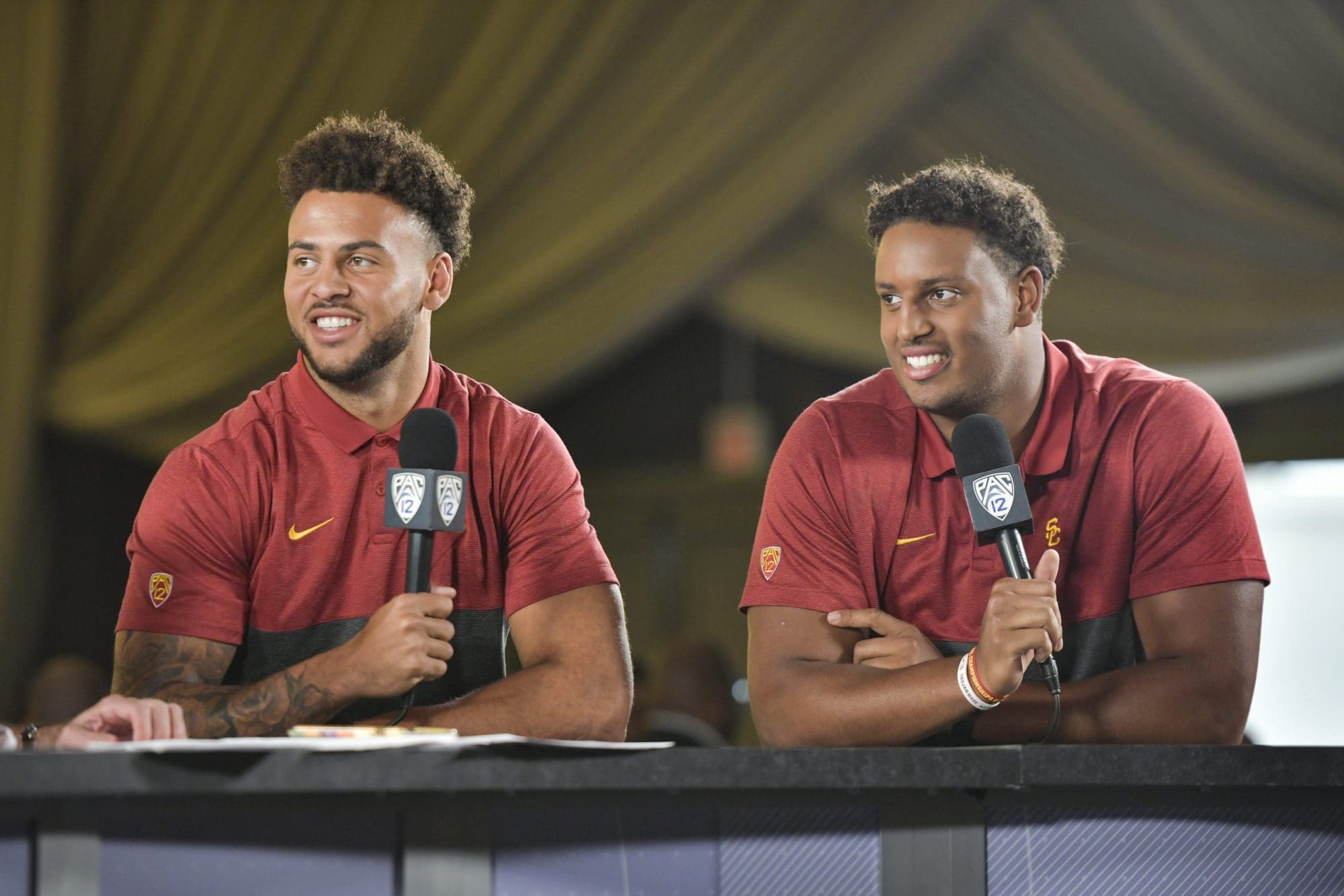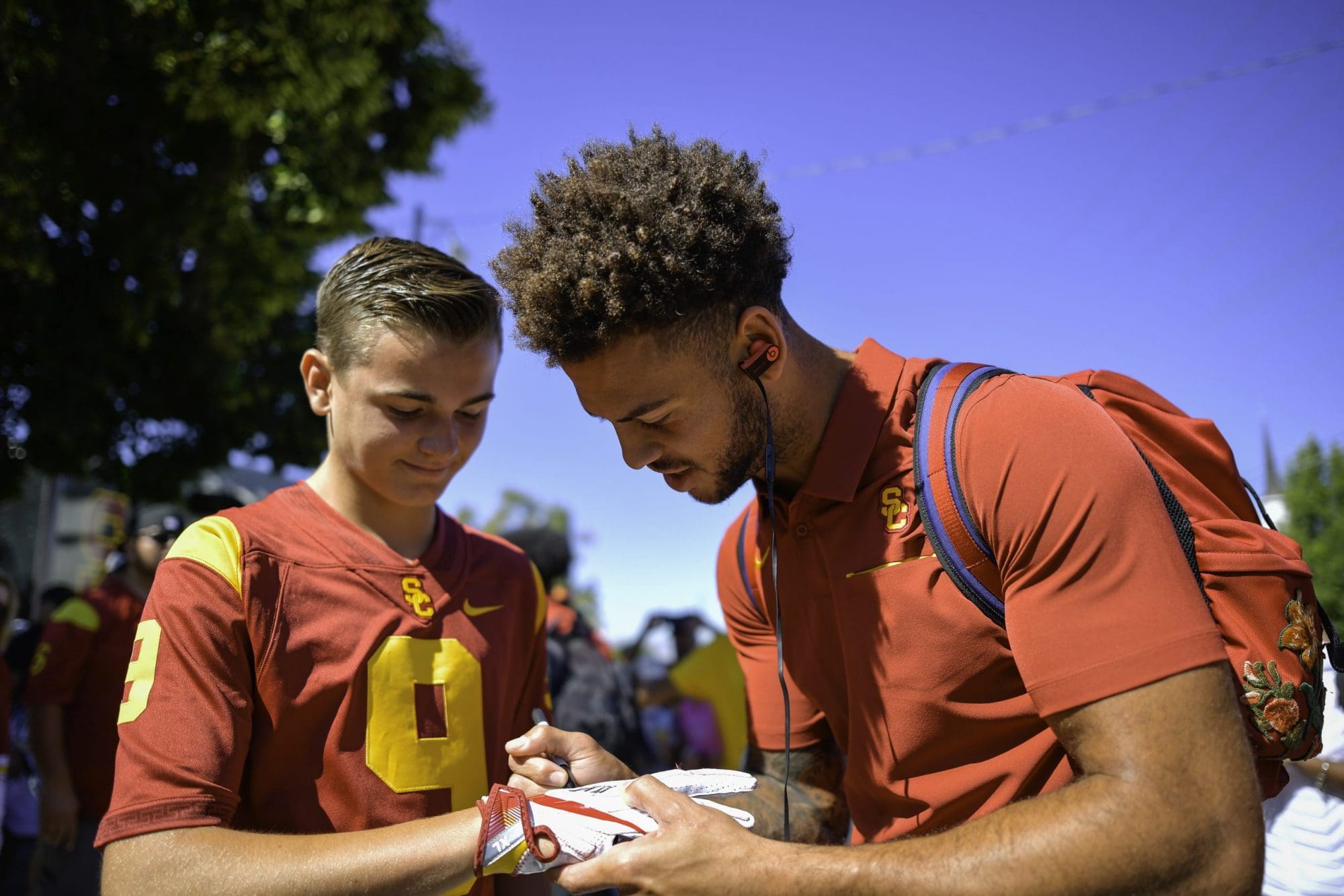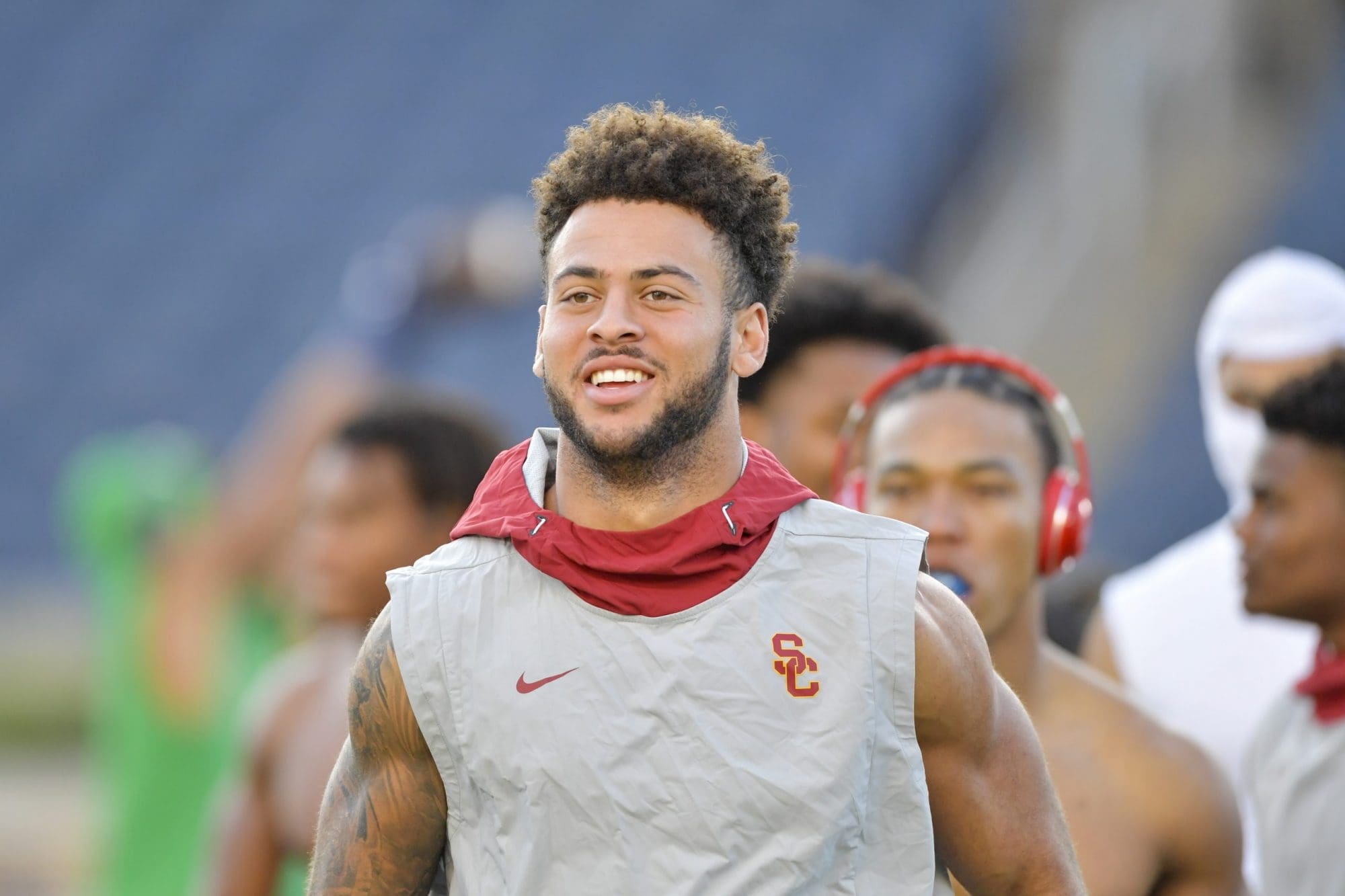
Michael Pittman, Jr. knows what it’s like to stutter as a child, but he hasn’t let that stop him from becoming a star football player at the University of Southern California.
Michael, a wide receiver for the Trojans, remembers stuttering from an early age. He tells us, “I was trying to say something and couldn’t get it out. I’d be pointing at stuff and getting frustrated…I just couldn’t talk. I wouldn’t answer questions in class, I wouldn’t want to raise my hand and talk.”
Michael credits his family – his siblings, mother, and father, a former NFL player – with providing him with the supportive environment he needed to thrive as a child: “My mom was always really patient with me and would let me talk. Whenever I needed to say something, she would just wait on me, saying, ‘Just keep coming, just slow down and let it come.’”

Like many other people who stutter, and despite being a high-profile athlete, Michael is not immune to the common misperceptions of stuttering. As a football player, giving interviews and speaking in front of crowds have become commonplace, but it hasn’t always come easy.
“When I first started doing interviews and would have to speak in front of crowds or in front of cameras, I would stutter pretty good and would not be able to stop stuttering.
And people still might think I’m slow or unintelligent,” says Michael. “I used to struggle with that more. I’ve come to accept that that’s how I am.”
While he says that speech therapy as a child helped him develop and apply techniques to minimize his stuttering through elongating his words and hearing himself speak, he cautions against the common practice of pulling students out of class to work with a speech-language pathologist.
“It puts everyone’s eyes on you, when you’re still young and still developing,” says Michael. “It can really hurt some kids to be looked at.” He encourages before- and after-school speech activities that provide resources and build community for students who stutter without making kids who stutter feel isolated from their peers.
Michael adds, “People who have never heard me talk before say, ‘Hey, this kid should never be talking on TV.’ You just have to be okay with that, especially being in a spot where there are so many people who are uninformed, and they don’t really know you.”


Today, Michael has embraced his stuttering and remains a passionate voice for children who stutter. Michael intentionally keeps his speech slow and is constantly reading aloud – books, articles, even bumper stickers on cars sitting in traffic. He advises kids who have had similar experiences growing up, “Just know that it’s a part of you and embrace it, and you shouldn’t feel bad or less than because you may talk different than someone else.”
We completely agree.
Photo Credit (all): USC Athletics
